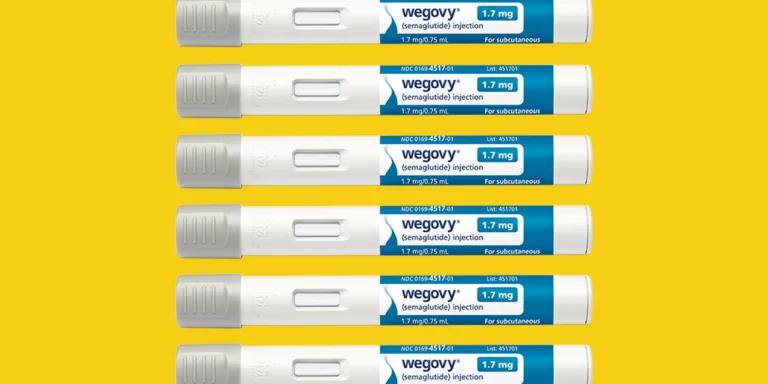
In the world of diabetes management and weight loss, two medications have been making waves: Saxenda and Rybelsus. Both medications are FDA-approved and manufactured by Novo Nordisk. They belong to the family of GLP-1 receptor agonists (glucagon-like peptide-1 receptor agonists) also called GLP-1 agonists or incretin mimetics. They have shown promising results in improving blood sugar control and aiding weight loss in adults. In this comprehensive comparison, we will delve into the key similarities and differences between Saxenda and Rybelsus, providing you with all the information you need to make an informed decision about which medication may be right for your weight loss journey.
What are Saxenda and Rybelsus?
Saxenda is the brand name for liraglutide, a medication primarily prescribed for weight management in individuals with a body mass index (BMI) of 27 or higher or those with obesity (BMI of 30 or higher) and weight-related health conditions such as high blood pressure or high cholesterol.
On the other hand, Rybelsus, also known as semaglutide, is available for once-daily oral use. It is used as a first-line medication for improving blood sugar control in adults with type 2 diabetes. It is not approved as a weight loss medication but is prescribed off-label as a weight loss drug by some healthcare professionals.
These medications mimic the actions of GLP-1, an incretin hormone that stimulates insulin secretion in the pancreas. Both medications work by mimicking the activity of GLP-1 in the body, which helps regulate blood sugar levels, slows down gastric emptying and reduces cravings.
It is useful to note Rybelsus is an oral medication with the same active ingredient as Wegovy and Ozempic.
Dosage and administration
One significant difference between Saxenda and Rybelsus lies in their dosage and administration. Saxenda requires daily subcutaneous injections, which some individuals may find inconvenient or burdensome while Rybelsus offers the convenience of an oral tablet. This difference may be a crucial factor for individuals who have a preference for the mode of administration or those who struggle with self-injections.
Effectiveness for weight loss
When it comes to weight loss, several studies have shown that semaglutide (Rybelsus) has been found to be more effective than liraglutide (Saxenda). In a 52-week randomized trial, participants who received daily doses of semaglutide experienced greater weight loss compared to those on liraglutide or placebo injections. By the end of the study, semaglutide participants lost an average of 11.2-13.8% of their starting body weight, while liraglutide participants lost around 7-8%. Another study conducted over 26 weeks further supported these findings, demonstrating that semaglutide injections resulted in more weight loss compared to liraglutide and placebo.
Efficacy for type 2 diabetes management
Both Saxenda and Rybelsus have been proven to be effective in the management of type 2 diabetes. They work by lowering blood sugar levels and improving insulin sensitivity. However, the choice between the two medications for diabetes management may depend on individual factors such as blood glucose levels, existing treatment plans, and the ability to manage the condition through lifestyle changes alone such as physical activity/low-calorie diet or in combination with medications like metformin. Consulting with a healthcare professional or diabetic specialist is crucial to determine the most suitable treatment option.
Side effects
As with any medication, Saxenda and Rybelsus may both have potential side effects. These medications belong to the same class of drugs, and therefore, they share many common side effects. These may include gastrointestinal issues such as nausea, vomiting, diarrhea, and constipation. However, it’s worth noting that individual responses to medications can vary, and some people may be more susceptible to certain side effects than others.
Rare but potentially serious side effects associated with GLP-1 receptor agonists include pancreatitis (inflammation of the pancreas), thyroid cancer, gallbladder problems and hypoglycemia (low blood sugar).
It is essential to discuss any concerns or side effects with a healthcare professional to determine the best course of action.
Safety and interactions
Both Saxenda and Rybelsus have been deemed safe for use when prescribed by a healthcare professional. However, it is essential to consider potential drug interactions and alcohol or lifestyle interactions. Saxenda and Rybelsus may interact with other medications, and it is crucial to disclose all current medications including supplements and other medical conditions to the prescribing healthcare professional. Additionally, alcohol consumption should be discussed with a healthcare professional, as it may affect blood sugar levels and the absorption of these medications.
Pricing and insurance coverage
Pricing and insurance coverage can also play a significant role in the decision-making process. The cost of Saxenda and Rybelsus may vary depending on factors such as insurance coverage, dosage, and quantity. It is advisable to consult with a healthcare professional and insurance provider to determine the most cost-effective option for your specific situation.
Conclusion
In conclusion, Saxenda and Rybelsus are both medications that have shown efficacy in weight loss and the management of type 2 diabetes. Saxenda (Liraglutide) is administered as a daily injection, while Rybelsus (semaglutide) offers the convenience of an oral tablet or weekly injection. Semaglutide has been found to be more effective for weight loss compared to liraglutide in clinical trials. However, the choice between the two medications should be based on individual preferences, lifestyle, existing treatment plans, and consultation with your healthcare provider. Understanding the similarities and differences between Saxenda and Rybelsus is crucial in making an informed decision about the most suitable medication for your needs.
Sources
- Rybelsus vs Saxenda Comparison – Drugs.com
- Semaglutide Better Than Liraglutide? – Wegovy Vs Saxenda – myBMI
- Prescription Weight-Loss Medicine – Saxenda® (liraglutide) injection 3mg
- Type 2 Diabetes Medicine | RYBELSUS® (semaglutide) tablets 7 mg or 14 mg
Medical Disclaimer
NowPatient has taken all reasonable steps to ensure that all material is factually accurate, complete, and current. However, the knowledge and experience of a qualified healthcare professional should always be sought after instead of using the information on this page. Before taking any drug, you should always speak to your doctor or another qualified healthcare provider.
The information provided here about medications is subject to change and is not meant to include all uses, precautions, warnings, directions, drug interactions, allergic reactions, or negative effects. The absence of warnings or other information for a particular medication does not imply that the medication or medication combination is appropriate for all patients or for all possible purposes.









